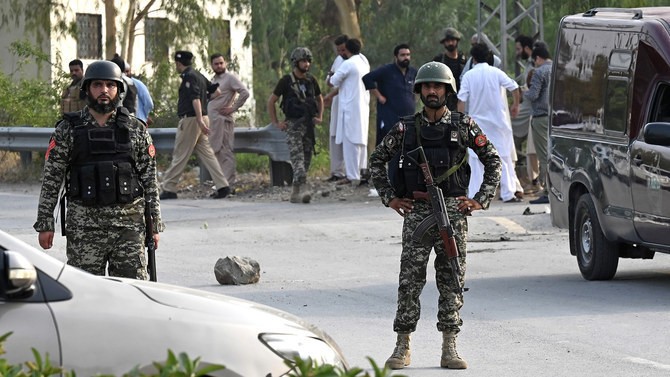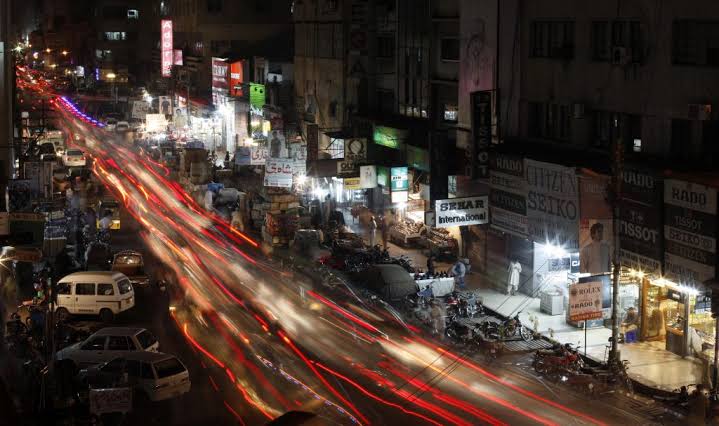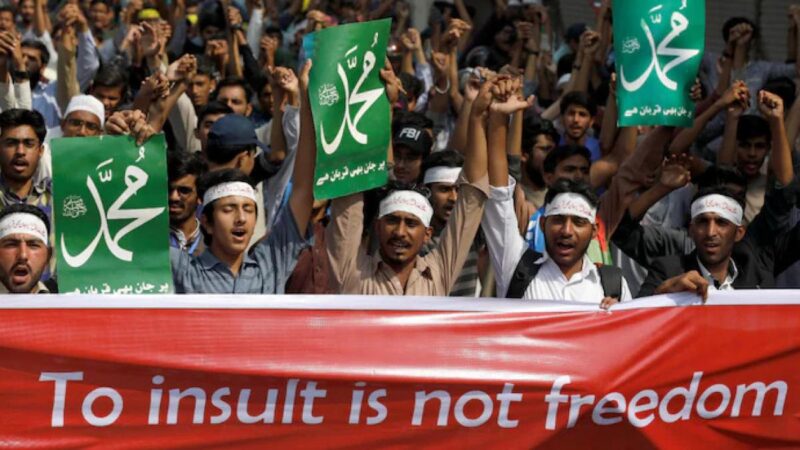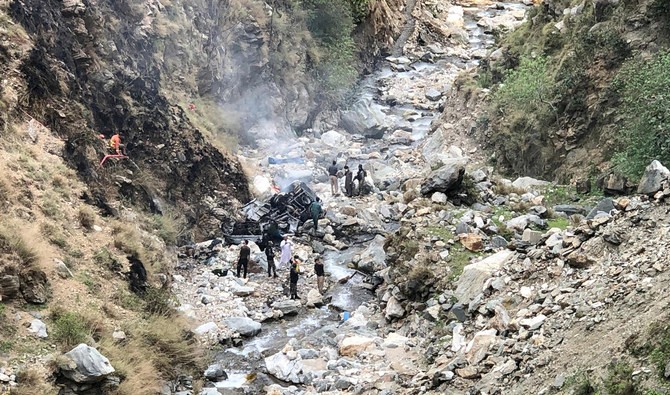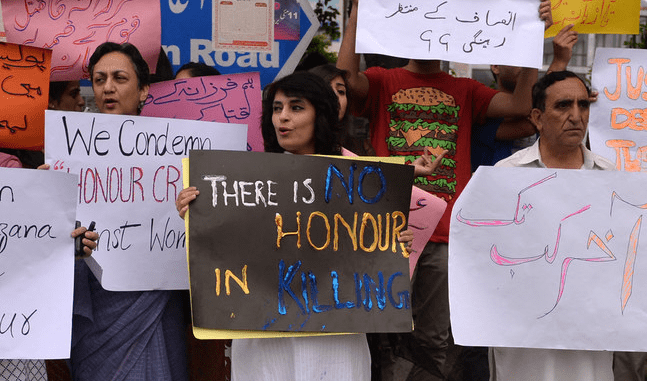Chinese nationals asked to leave Gwadar!
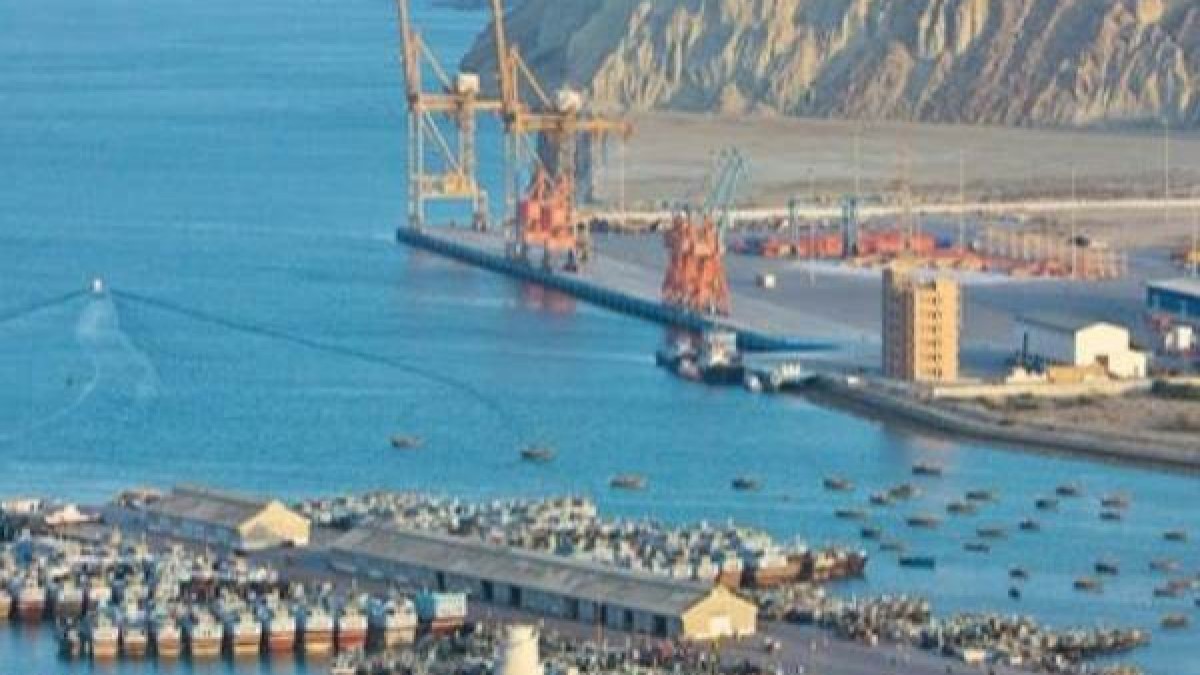
largest province Balochistan is in the throes of pain and the Pakistani state is the least worried about it. While Pakistan’s current problems are endemic and unlikely to go away, its biggest challenge lies in ensuring that the China Pakistan Economic Corridor (CPEC) does not collapse that too, in Balochistan where Gwadar Port, the key stone of the CPEC is under construction.The lack of development and economic growth fuelled by Chinese colonialism in the Gwadar Port has created a ground swell of anti-China feeling resulting in locals recently asking Chinese nationals residing there to leave with a week’s time. Maulana Hidayatur Rehman, Gwadar Rights Movement leader, issued a warning to Chinese nationals to leave the Gwadar port area, reported The Maritime Executive (26 December 2022). Maulana issued a threat to Chinese nationals living in Gwadar, warning that if the government “ignores” their peaceful protests, the participants have a right “to pick up and use weapons to protect our rights.” Clearly, Chinese nationals have been picked as negotiating chips by Baloch protestors to ensure that their demands are met.
Balochistan’s problems today are not solely caused by the Chinese presence. It is also utter neglect by the Pakistani state. The most telling instance of this is the recent resurgence of the Tehreek-e-Taliban Pakistan (TTP) and simultaneous military operations by the Pak Army to try and bring the TTP back to the negotiating table. With the TTP back in action, the country’s internal security situation has also worsened. In addition to the incessant and violent attacks by the Pakistani Taliban in Khyber Pakhtunkhwa and Islamabad, Balochistan too has experienced enhanced violence. The TTP took responsibility for an attack in Chaman in which five security men belonging to the Frontier Levies were killed. This was in addition to attacks in Kohlu, Zhob and Turbat by Baloch separatists.On 18 December 2022, TTP militants had attacked a counter-terrorism department at Bannu in southern KP and took several police officers hostage. This surge in violence came after the TTP announced the end of an “indefinite” ceasefire on 28 November 2022.
Mukhtar Ahmed, writing in New Pakistan writes that, “Decades of an iron fist in Balochistan has failed to resolve the issue”. It is time therefore that the state finds a way to reach out to its Baloch citizens and find a way to pacify this province and figure out why it has been unable to bring socio-economic uplift to this resource-rich, but appallingly poor province. As former Editor of Dawn, Abbas Nasir writes, “Balochistan is on the boil again and precious lives continue to be lost in the province, with little or no acknowledgement that the so-called iron-hand policy being pursued there since the killing of Nawab Akbar Bugti in 2006 has delivered nothing but spiralling death and destruction.” As Nasir notes, “The policy pursued so far has inflicted considerable pain and agony on the law-enforcement personnel and the Baloch population alike. While the paramilitary forces are armed with the ‘writ of the law’ in taking on the ‘terrorists’, the general Baloch public is furious at being treated like a hostile, alien presence on their own soil.”
Maulana Hidayat Rehman’s recent call to Chinese nationals to leave Gwadar within a week, is addressed to the less than 500 Chinese living there, all based in the Gwadar Port compound, reports Asian Lite International. Protests on the expansion of Pakistan’s Gwadar Port, a key asset for China’s Belt and Road Initiative in Asia, continue to escalate, potentially jeopardizing economic ties between China and Pakistan, reported The Maritime Executive. Last year, Rehman led similar protests for over thirty-two days. He called the action off after the government promised to address the demands he raised, which the protesters now say were never resolved. Although radical, Rehman’s decision to issue a warning to Chinese nationals is seen as a move to coerce government into a negotiation. Maulana Rehman, hails from a remote town in Gwadar called Surbandar. He is a local leader of the Jamaat-i-Islami and local Baloch follow him, not because of his religious or party affiliation, as they believe he discusses their issues in a way no one else has spoken. As one of the locals puts it, he speaks out our hearts, adding: “He says vociferously and collectively what one thinks he himself needs to have dared say that, but through him, we have got a voice: Gwadar belongs to us first, and we no longer want to be ignored.”
This is precisely the problem with the CPEC in Balochistan, where the locals are being treated as aliens while Chinese nationals are getting fat salaries and denying locals employment. Protests on the expansion of the Pakistan’s Gwadar Port, a key asset for China’s Belt and Road Initiative, continue to escalate, potentially jeopardizing economic ties between China and Pakistan. In the third week of December, events took a new twist after a protest leader warned Chinese nationals to leave Gwadar within a week.The protests were led by Maulana Hidayatur Rehman, affiliated with the Gwadar Rights Movement. These protests have been going on for about two months. The protests mainly involve blocking Gwadar’s port entrance and the Gwadar East Bay Expressway, a key artery connecting the port with Pakistan’s main highway network. Some of the grievances that protesters want addressed include, reduction of security checkpoints in Gwadar and end to deep-sea trawling, which locals argue is depleting their catches. The protesters also want the government to ease curbs on informal border trading with Iran. While these demands are not directly linked to Chinese projects in Gwadar, experts believe that developments are part of the problem.
Since 2021, Chinese nationals have been the target of terror attacks in Pakistan. This includes a bomb attack in July 2021, which killed at least nine Chinese workers in a bus heading to the Dasu hydropower project site. These threats have prompted Beijing to press Islamabad to guarantee security for its nationals. When Pakistani Prime Minister Shehbaz Sharif visited Beijing, security of the Chinese in Pakistan was among the items on the agenda. With the Gwadar protesters demanding urgent government attention, the security of Chinese nationals is being used as leverage for negotiations. Rehman has also vowed to stop all Chinese projects in Gwadar and prevent movement of high-profile dignitaries in the port town. Although CPEC was launched back in 2015, local resistance has significantly affected its pace. The project further slowed during the administration of the previous Prime Minister Imran Khan due to friction between his government and China, but the new government appears keen to revive CPEC. With Balochistan in tatters, one can only sympathise with the Baloch people for their untold suffering. The Baloch are proud people and there is no reason for the Pakistani state to have clarity on what needs to be done. Merely kowtowing to their Chinese masters will only complicate the situation further.

Source: https://www.oneindia.com/india/protesters-ask-chinese-nationals-to-leave-gwadar-port-area-3506690.html

File photo of Maulana Hidayat-ur-Rehman, a local leader of the Jamaat-i-Islami in Gwadar. — Photo via Twitter
Source: https://www.dawn.com/news/1661224

